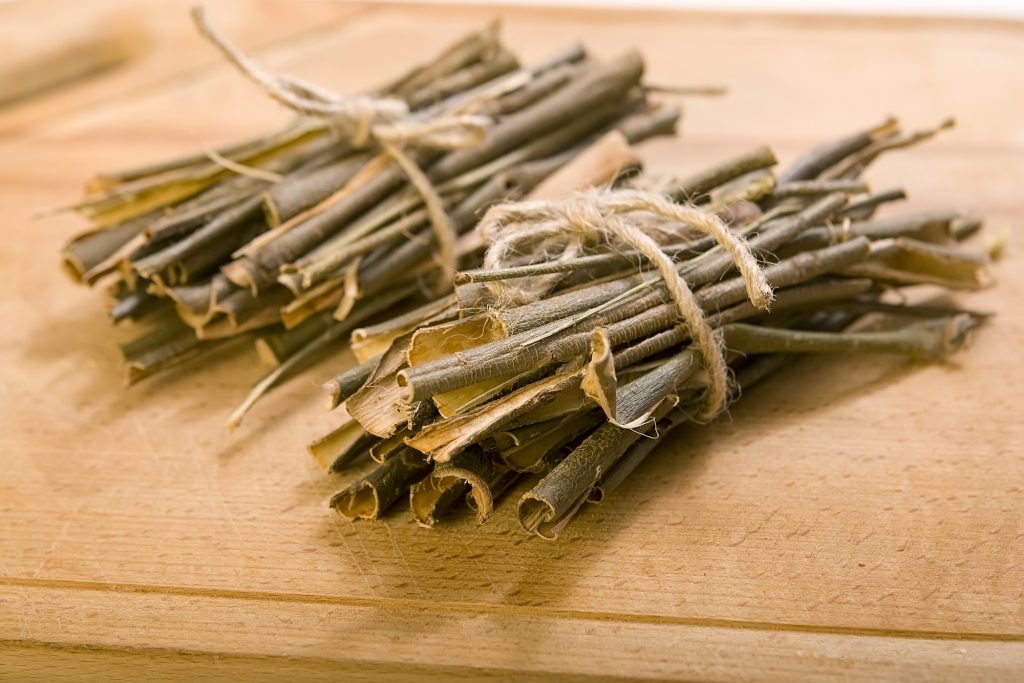Willow bark has been used for thousands of years to treat pain and inflammation in both China and Europe. It’s so effective, in fact, that its active pain-reliving constituent, salicin, was used to develop aspirin in the 19th century. Today, the venerable plant is still used to treat lower back pain, osteoarthritis, headaches, and various inflammatory conditions.
Now, a group of Finnish researchers from the University of Jyväskylä may have found an even more impressive use for this time-tested medicinal plant. Published in November in the journal Frontiers in Microbiology, their study reveals that willow bark may have broad-spectrum antiviral properties capable of treating both coronaviruses and enteroviruses.
The Study
“The emergence of viral outbreaks leading to epidemics and pandemics causes a huge strain on the global economy and public health,” the researchers wrote. “Hence, there is an urgent need for developing broad-spectrum antivirals that can effectively reduce the viral load in the environment and on surfaces….Willow bark has long been recognized for its medicinal properties and has been used in traditional medicines. However, its potential as a broad-spectrum antiviral agent remains relatively unexplored.”
This same group of researchers previously tested willow bark’s antiviral potential in a 2021 study that produced promising results and looked to continue that research in the current study. To test willow bark’s broad-spectrum antiviral properties, the team harvested commercially grown willow bark that they cut into pieces, froze, chopped up, freeze-dried, ground into small pieces, freeze-dried, and extracted with hot water.
They then used the extract to perform a series of in vitro tests on cultures of human cells that had been infected with two different strains of enterovirus (both of which can cause meningitis) and two different strains of coronavirus, one that causes seasonal colds and SARS-CoV-2, which causes Covid-19.
Their results showed that the willow bark extracts successfully protected cells from enteroviruses—as the team’s previous study had shown. And while the treated coronaviruses were still able to invade cells, the willow bark extract prevented them from reproducing, thereby inhibiting infection.
The team also tested individual compounds isolated from willow bark, including salicin, finding that they produced little or no antiviral effect individually. This led the researchers to conclude that “[the] bark extracts contain several virucidal agents that are likely to act synergistically and directly on the viruses.”
Conclusions
While more research is needed to confirm willow bark’s antiviral prowess, the results of these preliminary studies are extremely encouraging. “Our study was the first to report the antiviral properties of these extracts,” wrote the scientists, who now plan to continue their research by attempting to isolate compounds in willow bark that could be used to develop antiviral drugs. If successful, their work could have a significant impact on future treatments for a variety of diseases, including even the common cold.






